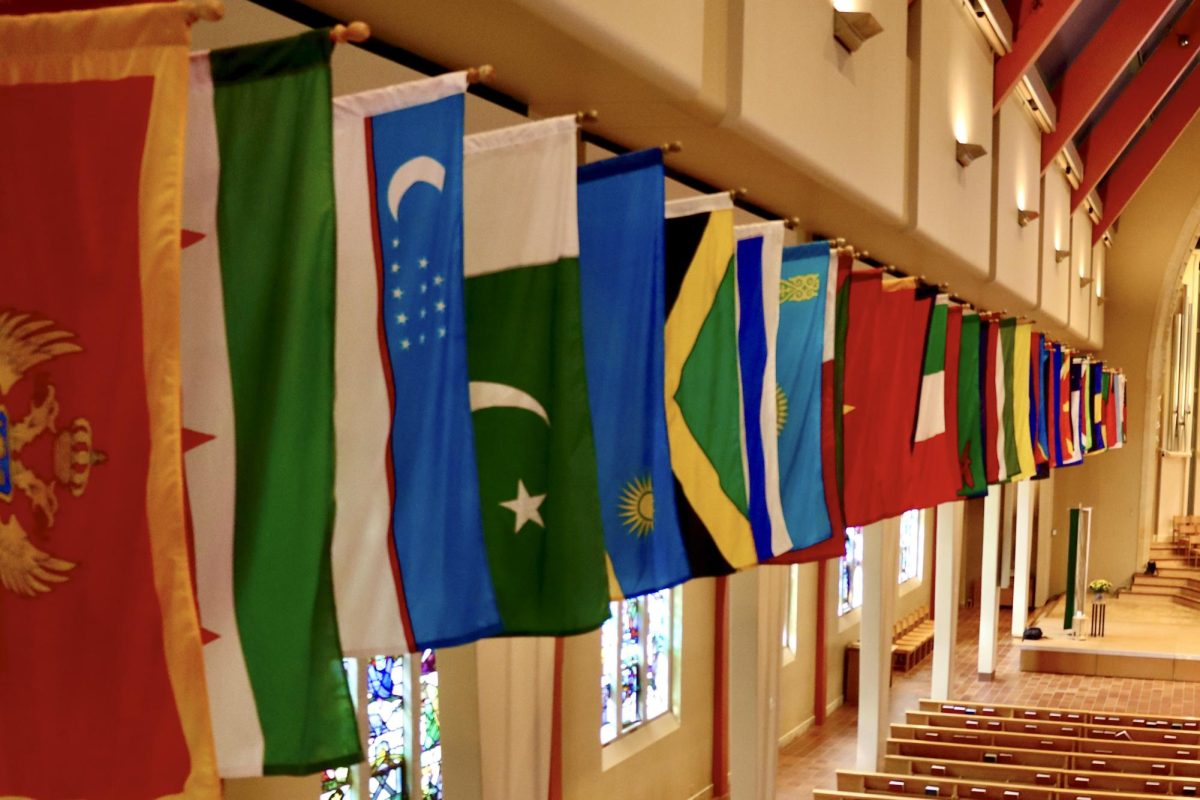Traversing down the Hill and across the Cannon River can be a daunting journey, but on Monday, Sept. 29, a controversial speaker enticed several St. Olaf students to wander over to the Carleton campus. Carleton and St. Olaf students and faculty gathered in Carleton’s Weitz Center for Creativity to listen to Stephen Walt’s lecture “Follies and Fiascos; Why Does U.S. Foreign Policy Keep Failing?” The event was hosted by Carleton’s Department of Political Science and the Harold Stassen UN Lecture Fund.
Stephen Walt is a professor of international affairs at the Harvard Kennedy School and a nationally acclaimed expert on U.S. Foreign Policy. Walt has taught at Princeton and the University of Chicago, worked for the Carnegie Endowment for Peace and the Brookings Institution and edited several scholarly journals including Foreign Policy and International Relations. In 1987, he wrote The Origins of Alliances, and in 2007 he co-authored The Israel Lobby and U.S. Foreign Policy with J.J. Mearsheimer.
Walt began his lecture with a whirlwind review of the United States’ foreign policy history. He highlighted the creation of institutions such as NATO, the World Bank and the United Nations. He reminded the audience about the strategies of containment and appeasement.
“The end of the Cold War left us in a remarkable position and on good terms with the world,” Walt said. He explained, however, that in the following years the U.S. failed to secure a peace agreement with the Middle East, invaded Afghanistan and Iraq, spent several trillion dollars on its defense budget and struggled to combat climate change. He continued listing off U.S. foreign policy disasters, pointing out that Americans were unprepared for the conflict in Ukraine and calling the United States’ handling of the Arab Spring “haphazard at best.” He cited that by most measures, freedom in the U.S. has declined over the past 15 years, and that Reporters Without Borders recently ranked U.S. press freedoms as 46th in the world.
“It is an odd paradox: because the U.S. is so independent and so secure, it has the freedom to move around, but none of it really matters,” Walt said. He explained that the U.S. – which spends more on defense than the next 15 countries combined, possesses thousands of nuclear weapons and is surrounded by vast oceans – is well suited for geopolitical success. In fact, the continental U.S. has not been invaded since 1812.
Despite domestic security, the U.S. has turned away from the isolationist approach President Woodrow Wilson advocated and toward a model of intervention.
“When we do get involved and it doesn’t go well, we come home and we are perfectly fine,” Walt said. He pointed out that this perceived lack of consequences makes it difficult for the U.S. to strategize and stick to priorities.
Walt listed four major problems with current U.S. Foreign Policy. The first is the way the elite convince citizens to act: they exaggerate the danger. Walt referenced the Communist scare and frustrations with Vietnam. He also revealed that, statistically speaking, an American civilian is more likely to be injured slipping in his or her bathroom than by al-Qaeda.
“They have found that exaggerating the danger is the best way to mobilize Americans,” Walt said. While this technique certainly mobilizes Americans into action, it also creates problematic misconceptions.
Secondly, he explained that democracies should excel at foreign policy because politicians and citizens have the freedom to debate. However, even with free press, the government can interfere with spread of information. Walt cited instances in which interviewees were primed before discussing their experiences in Iraq. The government can leak information to the press, and Walt referred to the Washington Post fiasco during the second Bush administration. The bias in U.S. media, both obvious and subtle, often subdues critical thinkers who could foster dialogue about foreign policy strategies.
The third, and perhaps most prominent, problem is that the people who make foreign policy mistakes are not held accountable.
“In fact, you are more likely to get in trouble for mismanaging a baseball team than for making a foreign policy mistake,” Walt said. He listed several examples of people who made enormous foreign policy mistakes and were pardoned or even promoted. Walt did say that innovation is important, and that mistakes are acceptable as long as they are acknowledged, but warned that the current system lacks accountability.
The last problem Walt discussed was the chaos of governmental bureaucracy. There are 3,000 positions that the president must fill when he is elected, and only 800 of these require direct approval.
“No other great power changes hands with this much transition and many positions remain unfulfilled for months,” Walt said. In addition, the U.S. routinely allows amateur ambassadors to hold positions that would be better suited for more experienced representatives. He provided the example of John Tefft, U.S. ambassador to Russia, a career politician who speaks little Russian.
Walt ended his presentation with a brief message of hope, pointing out that even though the U.S. foreign policy situation is not ideal, the country is still one of the world’s greatest powers, and he foresees progress in the future. The audience appeared generally impressed with Walt’s analysis, and a lively question and answer session followed the formal lecture. Walt left his audience feeling frustrated with the current system but hopeful for improvements.





